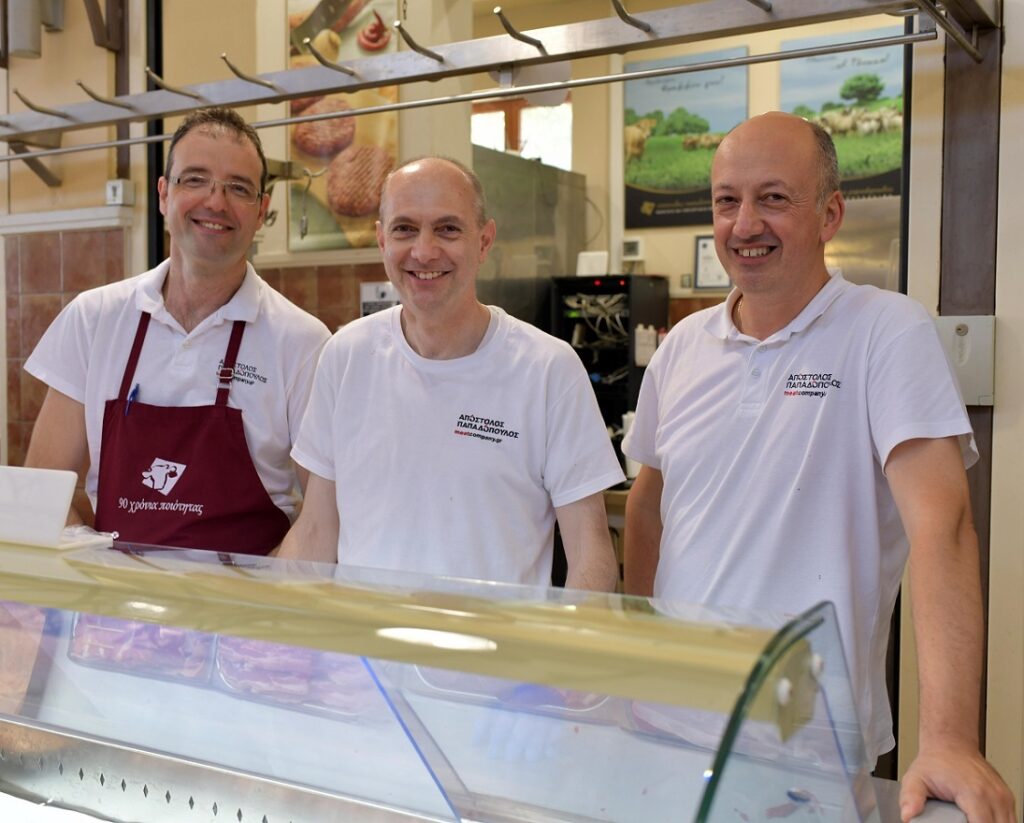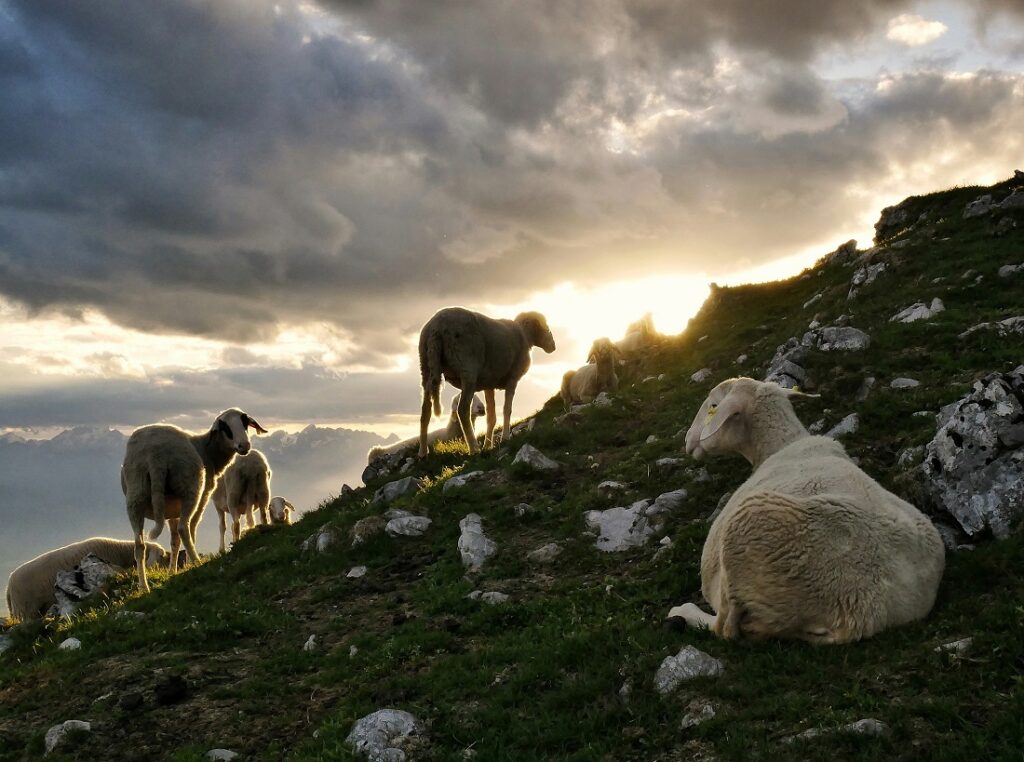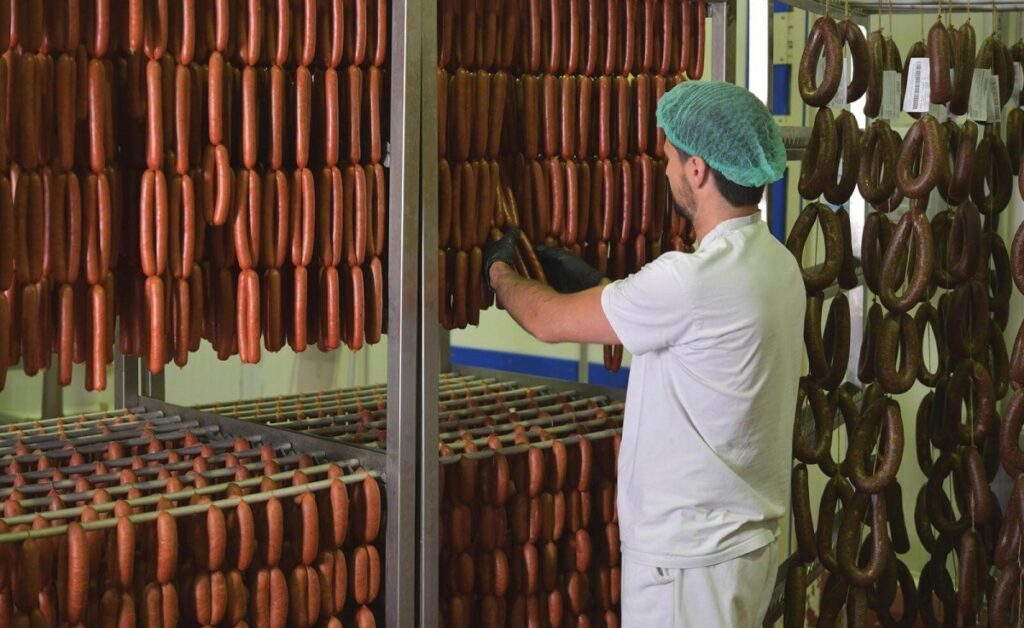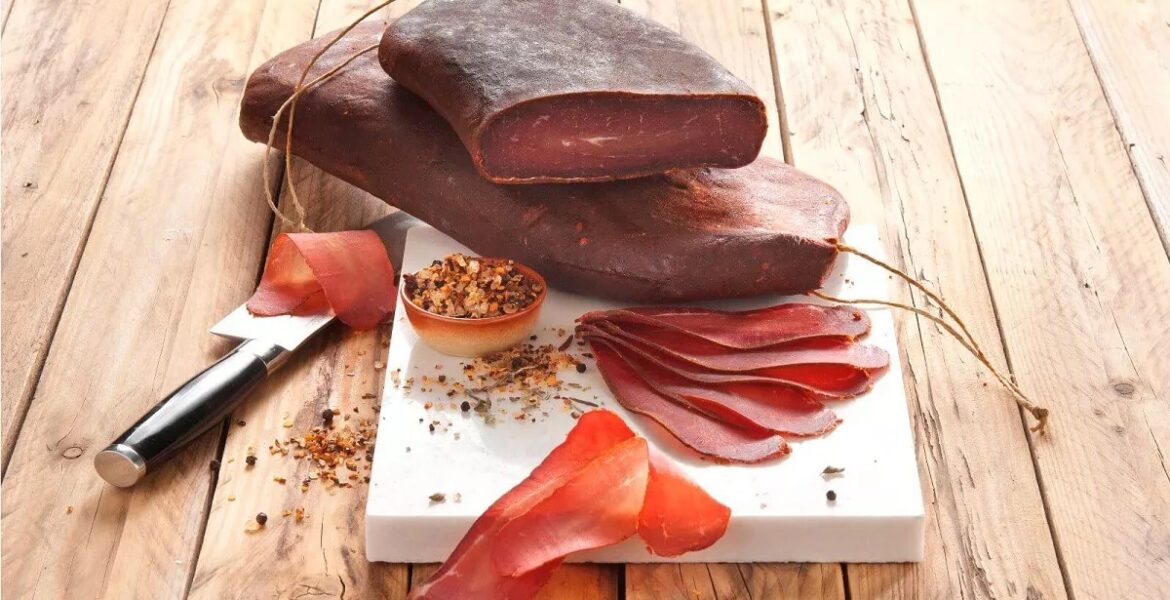A family-run delicatessen that produces pastourma, kavourma, and soutzouki, among other things, keeps the East's memories alive.
When grandfather Apostolos said goodbye to his life in Asia Minor 100 years ago and loaded his memories and his family into a refugee boat, he did not imagine that decades later, his six sons and then his six grandsons – five of his namesake Apostolos and one Thomas – would continue his work in the meat industry.
In other words, to make his name synonymous with the local charcuterie.

"Our grandfather," Apostolos Papadopoulos, general manager of the family business, explains to me, "brought all the passion, know-how and the secrets of taste to cold meats from his homeland. He had learned it from his father when he worked alongside him in the butcher's shop he ran in the village of Bousurdak in the north of Asia Minor and very close to the Black Sea."
"When, as a refugee, he came and settled in Xanthi with his wife Despina, he continued to do what until then had been his whole life. He opened his first butcher's shop in the area of Eleftheria Square, and then, in the late 1930s and early 1940s, before World War II, he moved to the then newly established Municipal Market, where the business still operates today," he added.
He later introduced his six sons to this art, so they took over when he passed away. Today, the six first cousins are reviving their grandfather's art by making kavourma, soutzouki, and pastourma with the same and unchanging recipes they inherited from him.
"I remember," Mr. Papadopoulos tells me, "every winter during the holidays, when the pigs were slaughtered, he would smoke the sausages and other preparations with thyme, oregano, and Eastern spices, spreading them on the fireplace. We do the same but with ovens and organised structures."

Authentic and well-travelled
"You must definitely try the petalo sausage of Xanthi," urges Mr. Papadopoulos. "We old Xanthios prefer it hot because it goes well with the local tsipouro."
The Xanthi Petalo Sausage, therefore, is made from 100% Greek beef with spices in an edible natural casing. It is traditionally tied by hand – and indeed in the characteristic shape from which it gets its name – and matures naturally, just like in the old days. In particular, it has the same spices (the main focus is colourful peppers), which, combined with salt, help in the same way to mature the product.
In fact, as I learned, petalo is the first cold meat to appear in the wider region of the prefecture, as kavourmas is, more or less, made by everyone at home.
On the other hand, the kavourmas entered the butcher shops in the early 1970s, "when the villages now gradually began to be deserted, and their inhabitants sought their fortune in the big cities," he said.
"In the mid-1960s, my family had already built a small packaging plant where they began to standardise sausages and, a little later, kavourma and pastourma. But my father and his brothers, by collecting the knowledge and secrets of the local amateur sausage makers, gave these sausages the shape they have today," the general manager added.
Their kavourmas (a word of Turkish origin) are made from selected lean pieces of 100% Greek beef roasted and slow-cooked in their fat and protected by an artificial (non-edible) casing.
What are the criteria that make it successful?
Mr Papadopoulos is absolute: "It cannot be flavoured by anything other than salt. Therefore, you can only have a good roast when the meat is good."
This secret seems well known by the Muslim community of Pomaks who live in the area, and, as Mr Papadopoulos tells us, they especially love kavourmas.
"At first, they were wary of our cured meats; you see, they don't eat pork, but in the last 15 years, they've turned their attention, especially to anything that contains only beef and poultry," he said.

And what about the pastourma?
However, when the conversation goes to the pastourma, I perceive his enthusiasm even more clearly, and his voice is full of nostalgia.
"It is the charcuterie that connects us as a family more than anything to our roots from the East," he emphasises.
"Its preparation," he adds, "has accompanied me as a memory since I was a child. Ever since I can remember, watching my father and uncles make it. But the thing that has stayed with me the most is the process of drying it."
"So, every November, when the air was cold and the pastourma naturally dried outside, they repeated the same process to make the year's pastourma and especially to catch up with the holidays, as it is the ultimate treat for those days.
"With the climate change that high temperatures for the season usually accompany November, this process becomes practically impossible. But with the help of technology, we create controlled drying conditions, allowing us to make pastourma not only in November but also throughout the rest of the year."
So what if drying evolved over the decades? The ancestral recipe on which the entire taste palette of pastourma was based from the beginning remains unshakable and uncompromising over time. Selected beef leg is baked with salt, dried and then covered with the paste-mix of fenugreek (known as cimeni) and spices, which helps it to mature naturally.
And as Mr. Papadopoulos observes: "This is why I believe that the pastourmas, although it has limited fans, will not be lost over the years because it is based on authenticity and not on fads. After all, everything authentic usually also carries a story that is worth travelling from generation to generation."
Meat Company Apostolos Papadopoulos, Xanthi Municipal Market, tel.: 25410 22849
Loukia Chrysovitsanou is a columnist for Olive Magazine. Translated by Paul Antonopoulos.
READ MORE: Eidikon: The 100+year-old taverna in Piraeus.

